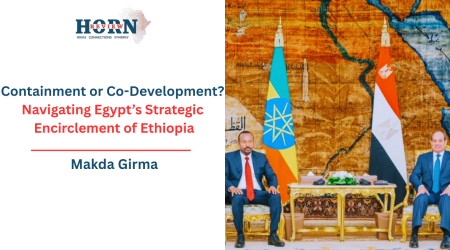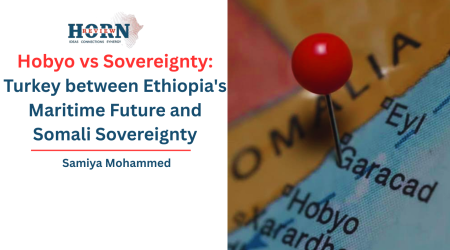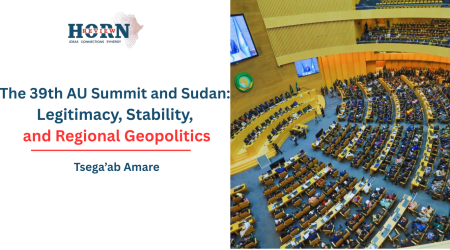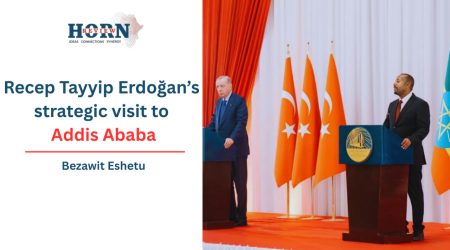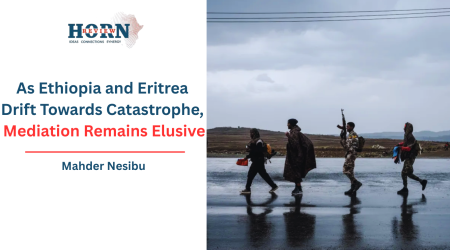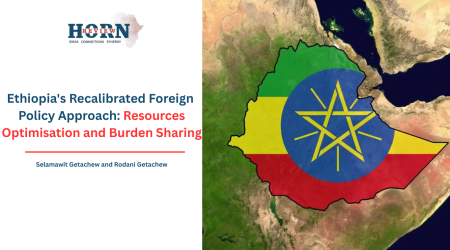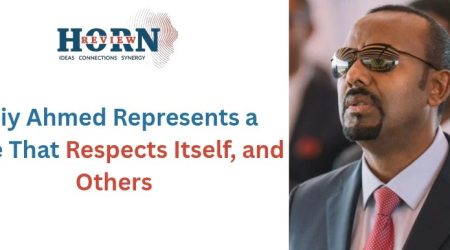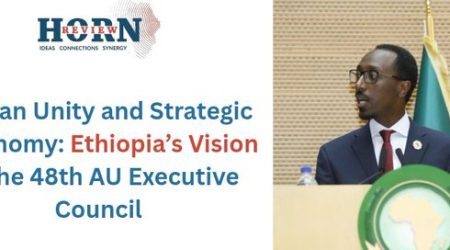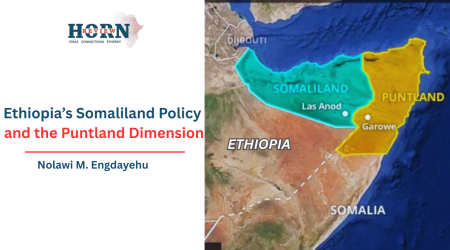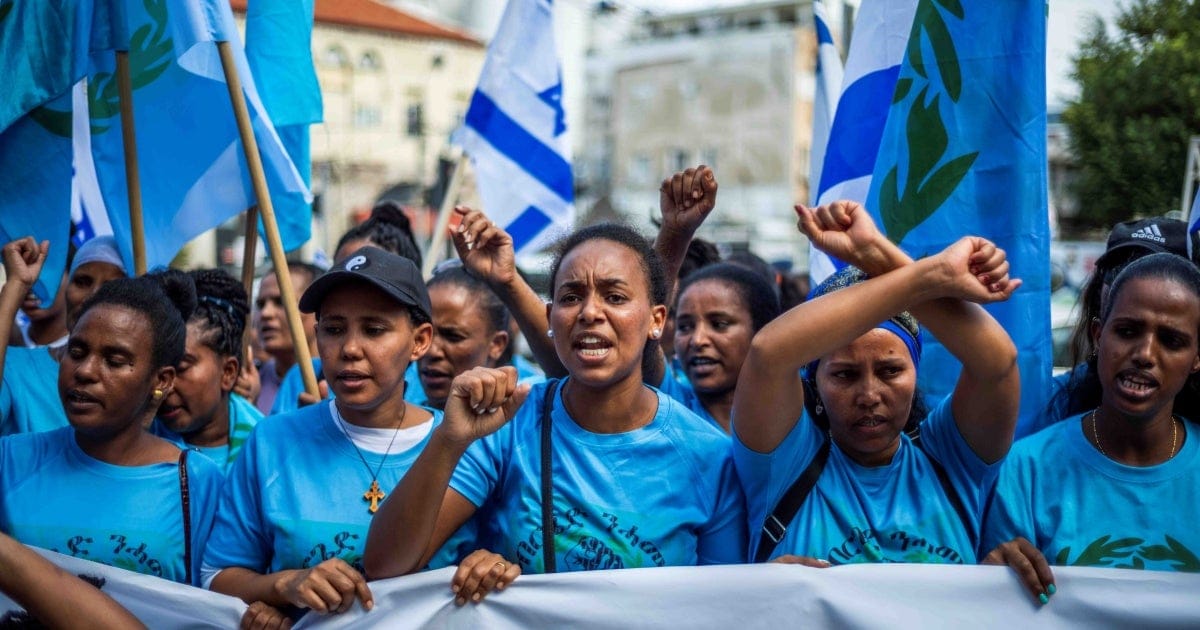
17
Aug
Can Eritrea’s Opposition Politics Transform Ethiopia’s Maritime Future?
It is a geographic truth, Ethiopia is the world’s most populous landlocked country, and has long strove with the existential prerequisite of achieving secure access to the sea. becoming landlocked after Eritrea gained independence made the country outlying from direct access to the red sea. For nearly three decades, Ethiopia’s economic ray of hope to the world’s maritime main routes has depended nearly entirely on the port of Djibouti, which, for as critical as it is, constitutes a logistical and strategic constraint due to its relatively great distance from Ethiopia’s interior.
Recalling this perilous dependence, Ethiopia has pursued alternative arrangements, such as accessing Somaliland’s Berbera Port via a memorandum of understanding during 2023 new year. There have also been diplomatic proffers for terrestrial routes via Sudan. However, these alternatives are plagued by geographical distance that make it complex logistical riddles that ultimately detract from Ethiopia’s economic feasibility and strategic autonomy. Amidst these challenges, the Eritrean port of Assab on the Red Sea coast stands out as a guiding light of its proximity and potential as a gateway that has the potential to fundamentally change.
Ethiopia’s access to maritime trade. Given its strategic location on the Red Sea, The Assab port holds tremendous importance for Ethiopia, hence the country’s pursuit of peace with Eritrea, marked by negotiations that we hold remembering since the time of 2018, it was driven by the urge for peace between the two nations and seizing this vital opportunity. Yet, these hopes have been bedewed by diplomatic stalemates. Not long ago we have observed that President Isaias Afwerki’s stiff posture, who has allegedly dismissed Ethiopia’s ambition to access the sea as “delusional,” beyond doubt undermines official prospects for cooperation.
This day’s president Isaias Afwerki has consistently worked toward to challenge Ethiopia’s sovereign right and legitimacy in numerous interviews, strategically invoking by signing the tripatriate treaty with Somalia and Egypt to subvert Ethiopia’s Grand Renaissance Dam project. In the current multifaceted geopolitical realm, Meanwhile, President Isaias Afwerki presided over his efforts toward the internal situation in Ethiopia, which he deemed crucial to Eritrea. He also repeatedly elucidates the impact of brain drain in Africa, though Eritrea accounts for the highest number of Africans affected by this phenomenon.
Nevertheless, ignore the often underappreciated dynamic that might unfold, that is the role of the Afar armed groups and other opposition groups start to ask for democratic change. Amazingly, some add sessions to their movement for the first time in Eritrean political advocacy. Of the oppositions ethnic Afar is the major one, The Afar people, Dwelling bordering coastal territories stretching across Ethiopia, Eritrea, and Djibouti, are bound by profound ethnic, cultural, and linguistic ties that transcend modern borders. Historically ostracized and forcibly displaced within Eritrea particularly around the strategically crucial Assab region the Afar have increasingly asserted themselves as both political and armed challengers to Afwerki’s rigid regime.
In recent statements, including in the Destuwele interview, The Eritrean Afar National Congress and associated militias such as the Red Sea Afar Militia have transitioned from diaspora activism to mobilization of armed resistance against the Eritrean state (DW Amharic, 2025). This realignment is in parallel with the recent diplomatic visit of the Eritrean Blue Revolutionary Party to Washington led by Bene Kahasi and Dawit Teferib, where they held meetings with U.S. policymakers to push for democratic change in Eritrea. These different activities by the opposition signify an incipient historic opportunity to challenge the Isaias regime on both diplomatic and military tracks (Plaut, 2025).
Some argue that these military and armed groups incompetent to challenge the long standing and centralised government of president isaias afwerki, While the Afar armed factions lack the extensive resources and centralized military structure that uphold Afwerki’s regime, yet persistent insurgency can pressure certain units and their insurgency can exert an evident strain on Eritrea’s military capabilities. This sustained pressure can possibly compel the Eritrean government to divert resources toward the Afar armed groups, thereby fracturing its capacity to pressure Ethiopia’s national interest. Such asymmetrical warfare effectively weakens Eritrea’s defensive posture without calling for direct Ethiopian showdown offering Ethiopia a strategic lever grounded in grassroots alliances.
Politically, the Afar’s past opposition to Eritrean independence, along with their close cultural and ethnic connection with Ethiopian Afars, enhances Ethiopia’s political and diplomatic influence in the region. There is a lot for Ethiopia to be gained by nurturing this “zone of friendship,” becoming a benign partner to the Afar, which can enhance regional stability while achieving leveraged access to Assab. Can ensure Ethiopia actionable intelligence about Eritrean military dispositions.
This changing dynamic offers a strategic buffer, focusing Eritrean military and intelligence efforts inward against the Afar threat and delineating Eritrean interference in Ethiopian affairs. Eritrea’s history of espionage and support of internal militias against Ethiopian national interests such as those of the Grand Ethiopian Renaissance Dam (GERD) and sea access underscores the utility of this buffer. The Afar group then offers itself as a counterbalance to Eritrean subversion.
Also indicative of Eritrea’s weakness, the regime’s recent decision to lease the Assab port to the United Arab Emirates testifies to a deep-seated fear of the Afar-Ethiopian connection and its potential to undermine Eritrean dominance over strategic maritime resources. The move, although a reflection of Eritrea’s desire to cement power, testifies inadvertently to the precariousness of its reign over marginalized peripheral regions, which remain hotspots of resistance and opposition. Although these Afar armed groups constituencies do not possess the military might wielded by Eritrea’s centralized military, their resistance has profound economic and security implications. Ethiopia’s ability to opportunistically support and consolidate such ethno-regional forces is a shrewd alternative to outright conflict based on historical relationships, local proxies, and asymmetric influence.
This approach may offer Ethiopia a less conflict-prone and more durable means of ending its landlocked fate. By embracing the ethno-regional politics that are in the DNA of the Horn of Africa, Ethiopia can transform historic maritime difficulties into a historic opportunity. Regaining access to Assab, the afar armed group and other opposition groups asking for democratic change movement is more than simply geographical expansion; rather it can potentially reshape regional trade flows, following up the military engagements of EPLF and security arrangements. In embracing the Afar quest for political and military transformation, Ethiopia is able to turn a long-standing hindrance into an entry point unlocking the Red Sea corridor that has prevented its ambition for so long and guiding in a new phase of integration, sovereignty, and economic intensity.
By Rebecca Mulugeta, Researcher, Horn Review
References
- Addis Standard. (2025). ‘Ethiopia Afar National Congress Opens Office in Semera, Declares Readiness for Armed Struggles From Ethiopia.’
https://x.com/addisstandard/status/1950575359730037019?t=1ewiwzhh6Sp9R2JifOfxxw&s=35. (X page)
- DW Amharic. (20525). ‘Eritrea Afar National Congress says that they are ready to challenge the Eritrea Government.’
https://www.facebook.com/1000646556281025/posts/1270013218497209/?mibxtid=rS40aB7S9Ucbxw6v.
- Martin Plaut. (2025). ‘Eritrean Blue Revolutionary Front Visits Washington to meet American Policy makers.’
https://x.com/martinplaut/status/1950825032080372148?s=35. (x page)

